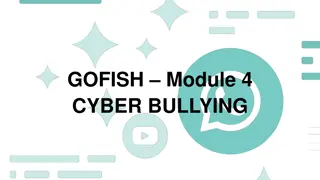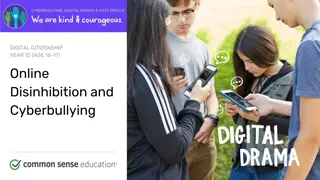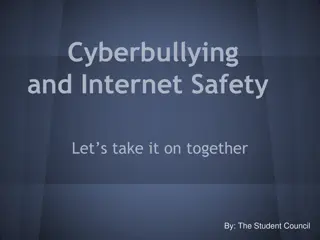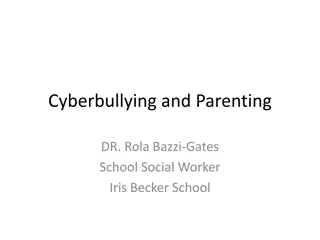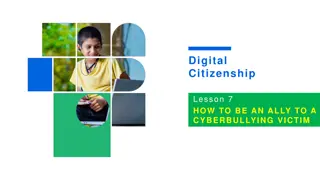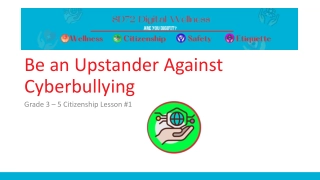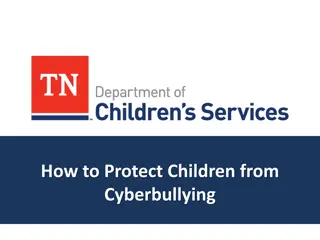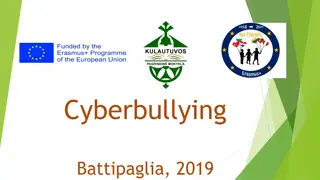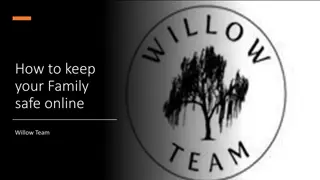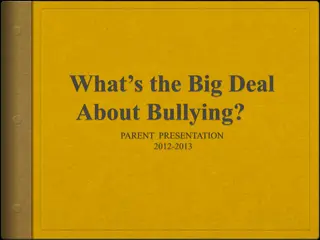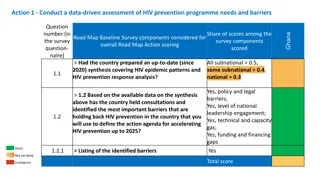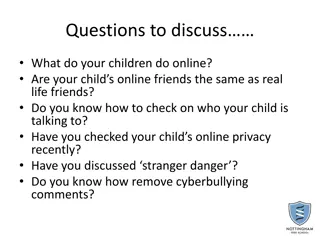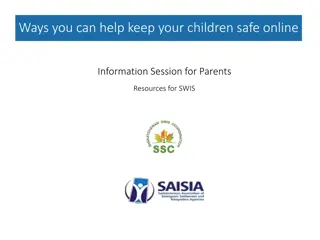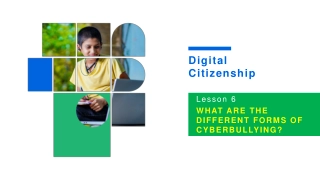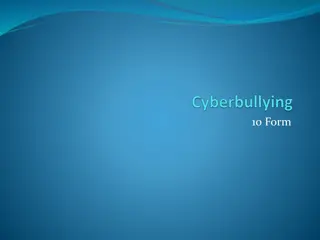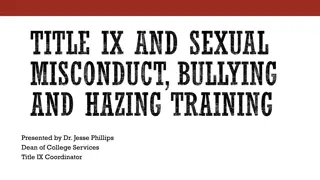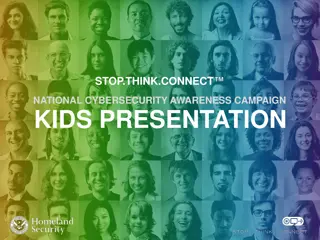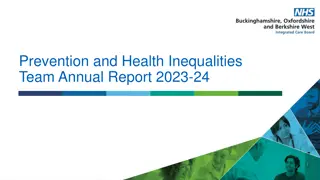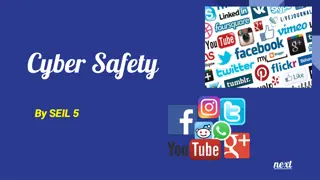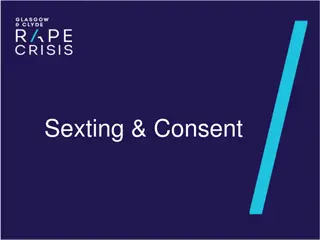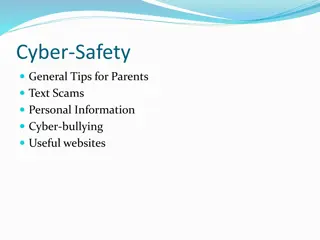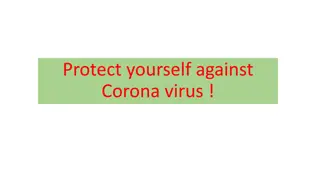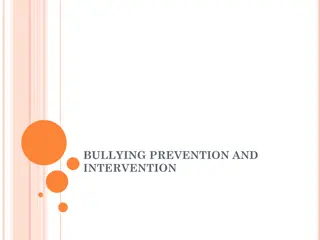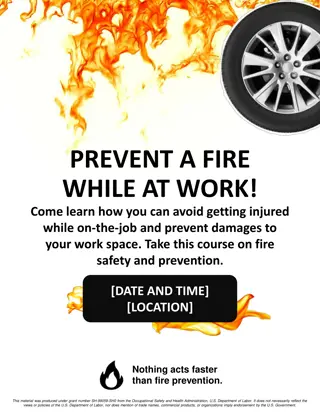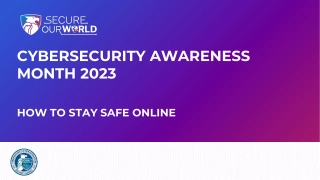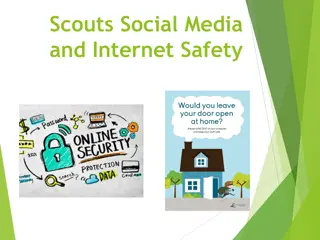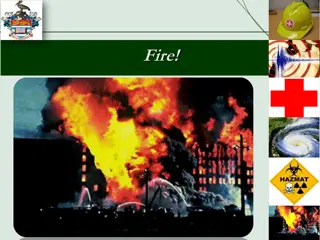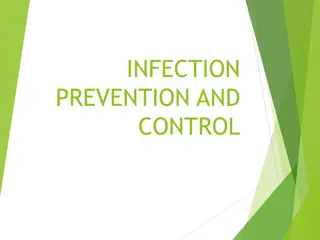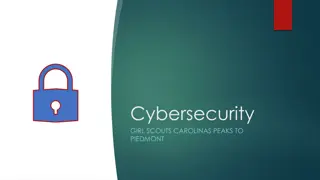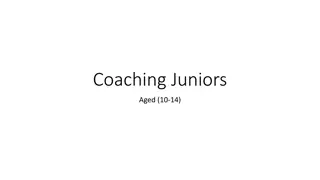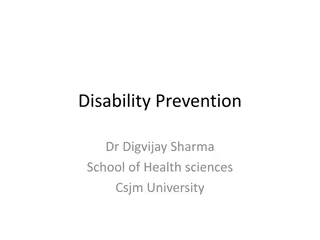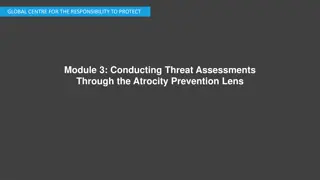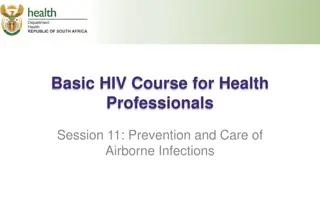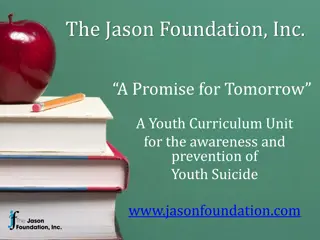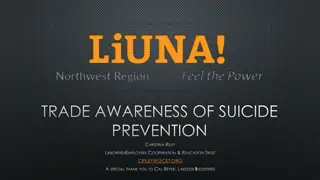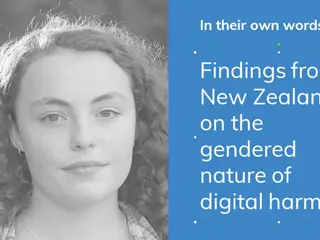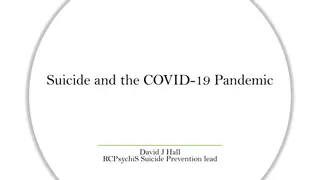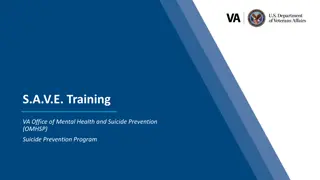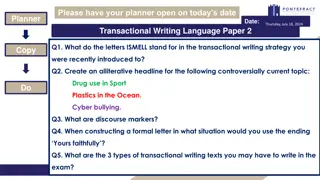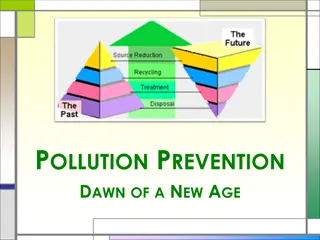Protect Yourself Online: Cyberbullying Awareness and Prevention
In this Media and Information Literacy Education unit, you will learn about making good use of social media while avoiding cyberbullying. Tips include being cautious with personal information, not engaging in cyberbullying, and how to protect yourself if you are targeted. Real-life cases highlight the severity of cyberbullying, along with the psychological effects on victims. Practical steps are provided to handle cyberbullying incidents, such as blocking the bully and seeking support from authorities and loved ones.
- Cyberbullying awareness
- Social media safety
- Online protection
- Digital citizenship
- Cyberbullying prevention
Download Presentation

Please find below an Image/Link to download the presentation.
The content on the website is provided AS IS for your information and personal use only. It may not be sold, licensed, or shared on other websites without obtaining consent from the author. Download presentation by click this link. If you encounter any issues during the download, it is possible that the publisher has removed the file from their server.
E N D
Presentation Transcript
Media and Information Literacy Education Unit 3: Make good use of social media and refuse cyberbullying Education Bureau and Journalism Education Foundation 2022
Make good use of social media 1. Do not disseminate personal information imprudently, avoid leaving digital footprint behind for any possible doxxing activity; 2. Do not download or open documents or files of unknown origin; 3. Be discreet when commenting online to avoid offending others; 4. Do not spread rumours; 5. Do not participate in cyberbullying; 6. Be careful when choosing friends and do not add strangers to your groups recklessly.
How to protect yourself when finding yourself being bullied? 1. Do not respond. Do not react impulsively or take revenge; 2. Keep a record of the cyberbullying activities, including screenshots, contents or voice notes in posts to facilitate the follow-ups of law enforcement; 3. Block the bully and reject any further messages from him/her/them; 4. Change your username and blogs and stay away from forums that upset you; 5. Notify the administrator of the forum or social media platform concerned to delete the related messages or pictures posted; 6. Seek support and help from family, social workers or teachers; 7. If necessary, contact the police for help.
Case 1: US Open female athlete and F1 racer cyberbullied and bombarded with death threats Sloane Stephens, American tennis player -Received over 2,000 malicious and hateful messages from people who are dissatisfied with her defeat -Aside from insulting words, many messages also involved death threats and sexual violence Nicholas Latifi, Canadian racer -Received a large number of death threats Source: ABC News. (22 December 2021) https://www.abc.net.au/news/2021-12-22/formula-one-death-threats-nicholas-latifi/100718570 Archysport. (7 September 2021) https://www.archysport.com/2021/09/im-going-to-have-nine-million-death-threats-to-lose/ HK01 (2021 9 8 ) https://www.hk01.com/ /674157/
The psychological effects of cyberbullying on the victim 1. Feeling sad and frustrated 2. Experiencing social alienation 3. Losing trust in people and becoming highly defensive 4. Losing confidence, resulting in low self-esteem 5. Suicidal tendency in severe cases
Case 2: Traffic Accident in North Point A woman - held up a mobile phone to capture the scene of a traffic accident in North Point - was severely condemned by netizens: How could she do that? Taking photos in that situation? Did she think that taking photos can save lives? Tell the world about her behaviour and shame her into oblivion! Subsequently, the woman was found to be a domestic helper of one of the victims. She was taking photos to record the scene and inform the victim s family. Source: Bastillepost.com (2018 12 11 ) https://www.bastillepost.com/hongkong/article/3728577/
We should think prudently before uploading information Before spreading messages, we should think prudently if: 1. I understand the content of the post and they are true and not malicious. 2. I have considered other people s feelings. 3. I am going to be responsible for these comments. and see if our actions contradict our: Empathy (Did I care about others feelings?) Sense of Responsibility (Did I uphold my social responsibility?)
Conclusion 1. Do not spread false or fake information 2. (i) Do not bully others online (ii) Do not perform Internet vigilantism (iii) Do not participate in doxxing 3. When spreading messages, you should take into account the feelings of others (empathy) 4. Take responsibility for you comments (sense of responsibility)
Conclusion The Internet world is not a virtual world where laws do not apply. Any bullying acts, whether online or not, are regulated by relevant laws if a crime is involved. Students are morally and legally responsible for what they say and do online.
References Blundy, R. Ng, Y., & Zheng, S. (2017, March 4). Hong Kong kids suffer in silence as cyberbullying contributes to youth suicide spike. South China Morning Post. Retrieved from https://www.scmp.com/news/hong- kong/article/2075891/cyberbullying-contributing-youth-suicides-hong-kong Unicef (n.d.). Cyberbullying: What is it and how to stop it 10 things teens want to know about cyberbullying. Retrieved from https://www.unicef.org/end-violence/how-to-stop-cyberbullying ABC News. (2021, December 22). Nicholas Latifi receives death threats after Abu Dhabi Grand Prix crash that saw Lewis Hamilton miss out on Formula 1 championship. Retrieved from https://www.abc.net.au/news/2021-12-22/formula-one-death-threats-nicholas-latifi/100718570 Archysport. (2021, September 7). I m going to have nine million death threats to lose. Retrieved from https://www.archysport.com/2021/09/im-going-to-have-nine-million-death-threats-to-lose/ HK01 (2021 9 8 ) 900 https://www.hk01.com/ /674157/ Bastillepost.com (2018 12 11 ) https://www.bastillepost.com/hongkong/article/3728577/


